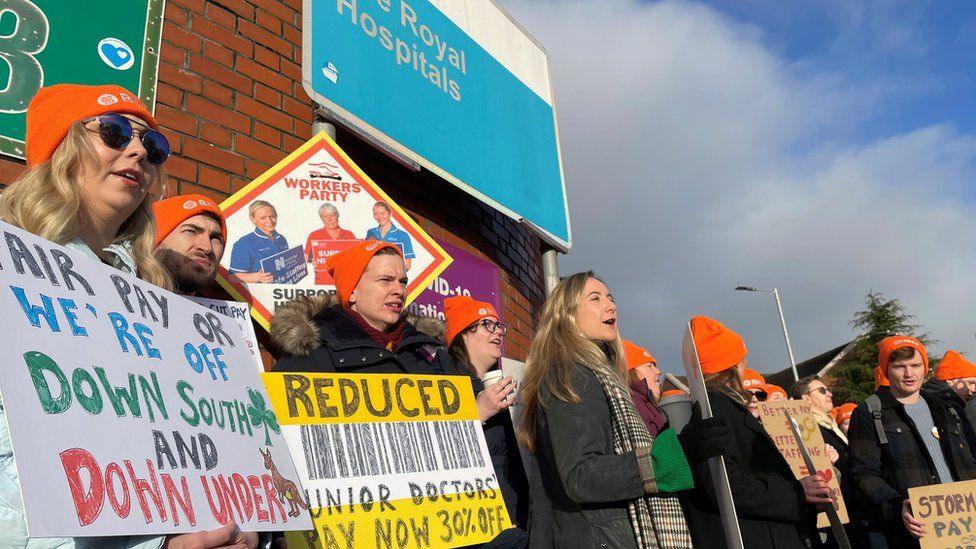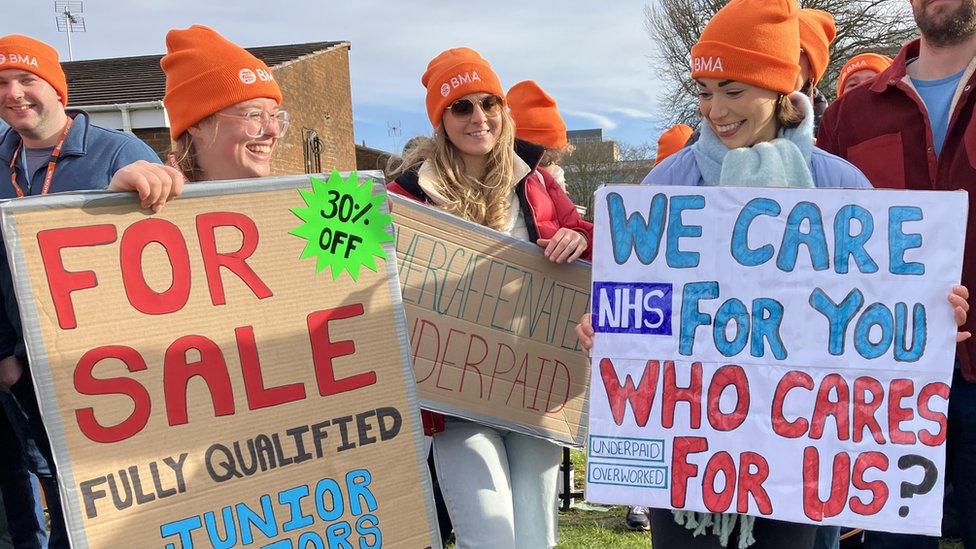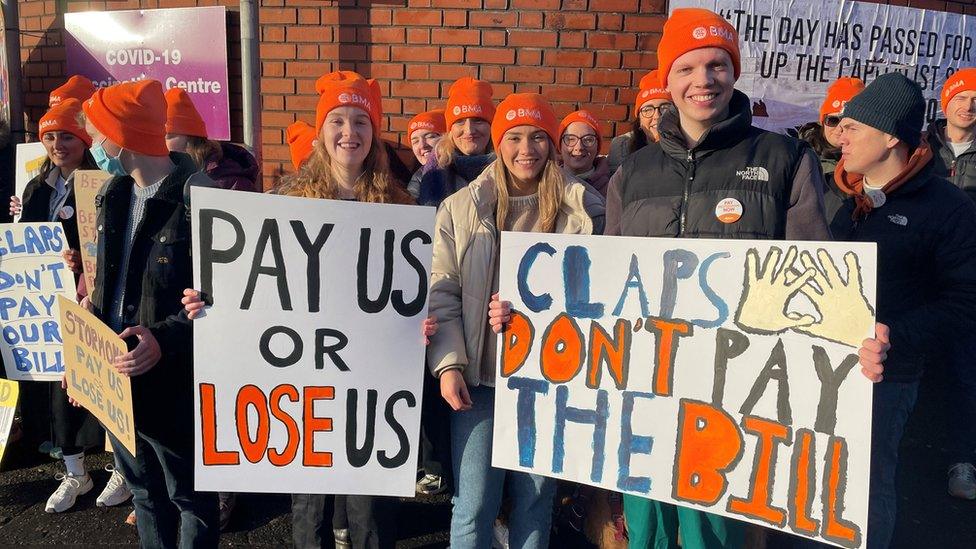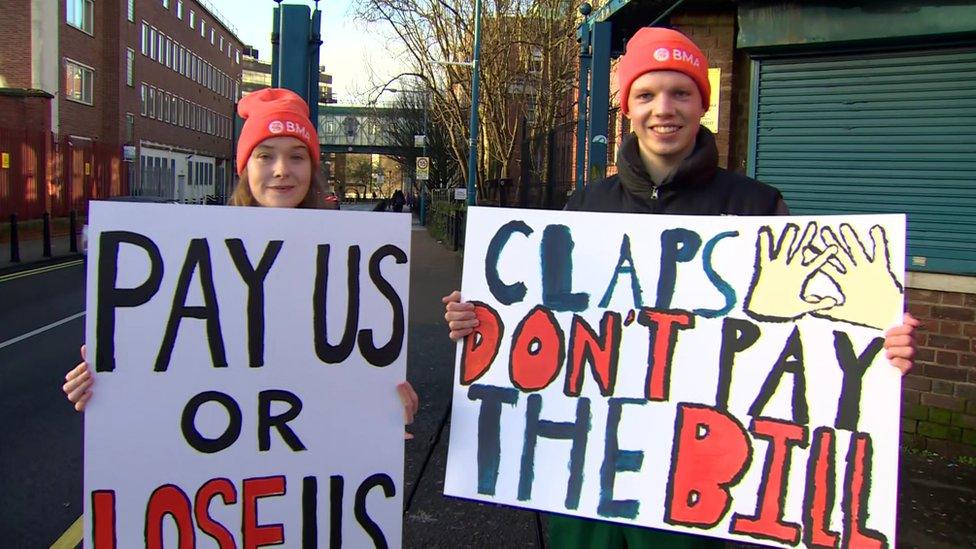Junior doctors in Northern Ireland to stage further walkouts
- Published

Junior doctors in Northern Ireland have said they will stage further strike action after pay talks with the Department of Health broke down.
Two 48-hour walkouts will take place from 07:00 BST on 22 May to 07:00 on 24 May, and again from 6 June to 8 June.
NI Junior Doctor Committee (NIJDC) chair Dr Fiona Griffin said doctors had been left with "no choice".
Health Minister Robin Swann has said he remains "fully committed" to pay negotiations with junior doctors.
Mr Swann said that junior doctors were a "critical part" of the workforce, but he warned that further strike action would have a "significant impact" on service delivery and exacerbate challenges in the health service.
He also told Stormont's health committee that this year's budget would make "further industrial action" in the health service more likely.
In a statement, the Department of Health said the minister was "disappointed" by the decision of the BMA junior doctor committee.
A spokesperson said "officials have engaged with the BMA over recent weeks and have had productive discussions on a number of issues including contract reform and non-pay issues".
They added that "contract reform is the only route to address the concerns of junior doctors" and that industrial action "will not advance the situation in Northern Ireland".
Junior doctors previously went on strike for the first time on 6 March.
Previously, the British Medical Association (BMA) said junior doctors' salaries in Northern Ireland had fallen by 30% over the past 15 years.
The current base starting salary for a junior doctor, external is about £26,000.
However, this does not take into account weekend or out-of-hours work payments.

Junior doctors took to picket lines at Altnagelvin Hospital and other sites in March
Dr Griffin said on Thursday that following a meeting with health officials the NIJDC was "very disappointed" there had been no progress on pay "including a commitment to work towards full pay restoration".
"We must act on behalf of our members who voted overwhelmingly in favour of taking strike action for full pay restoration," she added.
She said the government "must act now and prioritise staff pay" if the health service is to survive and retain doctors.
"Doctors can see their colleagues elsewhere in the UK and in other jurisdictions getting better pay and conditions for less pressurised workloads.
"This, along with years of below inflation or non-existent pay uplifts, the latest of which for the 2023/24 financial year has still yet to be paid, further adds to the reality that the key role junior doctors have in the health service is simply not valued."
Previously the Department of Health said junior doctors in Northern Ireland had been offered an average backdated pay increase of 9.1% for 2023-24, with those in their first year receiving a 10.7% uplift.

Junior doctors on the picket line at the Royal Victoria Hospital in Belfast during the previous strike
What is a junior doctor?
Junior doctors are qualified doctors who are still involved in clinical training, according to the BMA.
Patients may be treated by a junior doctor in a hospital or general practice setting.
All have completed a medical degree and can have up to nine years' of working experience as a hospital doctor or up to five years working and gaining experience to become a GP.
They work under the supervision of a senior doctor.
- Published6 March 2024
